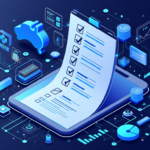The NSW Supreme Court’s Practice Note SC Gen 23, while designed to regulate the use of generative AI (Gen AI) in legal practice, is already significantly and embarrassingly out of date, and risks deepening the already critical access to justice gap in Australia. By imposing broad restrictions on AI, the Practice Note ignores (wilful blindness perhaps) the potential of specifically designed and developed legal AI tools to improve the quality of legal services, to dramatically reduce costs and significantly improve access to justice in NSW.
The Critical State of Access to Justice in Australia
Access to justice remains a pressing issue across Australia. Alarming statistics highlight the challenges faced by those unable to afford legal representation:
- One in four Australians experience a legal problem each year, yet most cannot afford a lawyer.
- Over 13% of Australians live below the poverty line, but legal aid is only available to 8%.
- Many impoverished Australians are deemed “too wealthy” for legal aid, leaving them with limited options.
In NSW, over 50% of criminal cases rely on Legal Aid, with 70% involving private lawyers, highlighting the crucial role of affordable legal services. - On a scale of 1 to 10, Queenslanders scored access to justice at an average of 5.02 in 2022, indicating a downward trend.
These figures underline the high costs of legal services and limited access to aid, disproportionately affecting vulnerable communities. The World Justice Project Rule of Law Index scores Australia moderately for affordable civil justice, reflecting these systemic issues.
The Promise of Legal AI in Addressing Inequality
Legal AI tools hold immense potential to bridge the access to justice gap by:
- Automating routine tasks: AI streamlines document review, legal research, and case management, significantly reducing time and overall costs.
- Improving accuracy: AI minimises human error by analysing vast datasets to identify relevant precedents and insights with greater accuracy than humans, minimising errors and improving the quality of legal services.
- Enhancing efficiency: Legal AI tools can streamline legal processes, reducing delays and improving the speed of case resolution.
- Providing affordable assistance and access to information: AI-powered chatbots and virtual assistants offer free or low-cost legal guidance for those unable to afford lawyers.
Globally, AI has demonstrated its value in improving access to justice:
- DoNotPay: This AI-powered chatbot helps users contest fines and access legal advice.
- Access Social Care (UK): Provides personalised legal guidance on social care.
- Legal Aid of North Carolina: Uses an AI assistant to address family, housing, and consumer law queries.
Missed Opportunities in Practice Note SC Gen 23
Practice Note SC Gen 23, with its broad prohibitions on the use of GenAI in certain legal tasks, risks undermining these potential benefits. By focusing on the risks of generic AI tools, the Practice Note overlooks the potential of specialised AI tools designed and developed for legal practice. These specialised tools can be trained on reliable legal datasets, incorporate ethical considerations, and adhere to confidentiality requirements.
Negative Implications of Practice Note SC Gen 23:
- Increased costs: By restricting AI’s ability to automate legal work, the Practice Note perpetuates inefficiencies, contributes to higher legal costs, making it even harder for individuals to afford adequate legal representation.
- Reduced access to information: AI-powered tools can provide readily accessible legal information and guidance to those who cannot afford lawyers. The Practice Note’s restrictions will limit the development and availability of such tools.
- Stifled innovation: The overly broad prohibitions may discourage investment in AI solutions that significantly improve the quality of legal services and access to justice even further.
Why Practice Note SC Gen 23 Is Unnecessary
As the Chief Justice would know the existing regulatory frameworks in NSW already address the concerns raised by Practice Note SC Gen 23:
- Uniform Civil Procedure Rules 2005 (NSW):
- Rule 35.3 requires affidavits to reflect a witness’s personal knowledge, ensuring reliability.
- Legal Profession Uniform Law and Conduct Rules:
- Rules 3, 4, and 9 mandate confidentiality, honesty, and accuracy in all court submissions.
- Evidence Act 1995 (NSW):
- Provides safeguards for the admissibility of evidence, regardless of its origin.
These frameworks ensure that legal practitioners uphold professional standards, whether relying on AI or traditional methods. No evidence suggests these rules have failed to address potential risks associated with AI use.
A Better Path Forward
To truly modernise the legal system and enhance access to justice, the NSW Supreme Court should adopt a more forward-looking approach:
- Developing a Court-Specific AI Model: The Supreme Court could easily and relatively cheaply develop its own closed-source AI model, trained on NSW laws, regulations, and case law, and make it accessible to parties involved in legal proceedings. This would ensure data privacy and confidentiality while providing a powerful tool to assist with legal research, document drafting, and evidence analysis.
- Collaborate with Legal Tech Companies: The Court could collaborate with legal tech companies to develop and implement AI solutions that meet the specific needs of the NSW justice system.
- Provide nuanced guidance: Instead of blanket prohibitions, the Court could outline standards for AI use, ensuring compliance without stifling innovation.
Broader Implications for Australian Jurisdictions
NSW’s approach to AI regulation sets an extremely concerning precedent for other Australian jurisdictions. If similar restrictions are adopted nationwide:
- The legal profession in NSW will fall behind global counterparts embracing AI’s potential.
- The access to justice gap will widen, leaving underserved populations further disadvantaged.
- Innovation in legal practice will stagnate, perpetuating inefficiencies further, maintain high costs and add further issues with access to justice.
Conclusion
The NSW Supreme Court’s Practice Note SC Gen 23 reflects a missed opportunity to harness the benefits of AI while addressing genuine risks. By failing to differentiate between generic and purpose-built legal AI tools, the Practice Note risks perpetuating high costs, inefficiencies, and limited access to justice.
Instead legal practitioners and policymakers need to advocate for balanced, informed regulations that encourage innovation while maintaining ethical standards. Without such advocacy, the promise of AI to transform legal practice and enhance access to justice will remain unfulfilled.
About Andrew Easterbrook: With almost 20 years of experience as lawyer in Australia, Andrew also helps Australian law firms streamline operations and enhance client service through tailored A.I. solutions. Learn more at About Andrew Easterbrook or Contact Andrew.
Sources:
Supreme Court of New South Wales. (2024, November 21). Practice Note SC Gen 23 – Use of Generative Artificial Intelligence (Gen AI). https://supremecourt.nsw.gov.au/documents/Practice-and-Procedure/Practice-Notes/general/current/PN_Generative_AI_21112024.pdf
Andrew Easterbrook’s Word Press. (2025, 14 January 2025). Practice Note SC Gen 23: Implications for Legal Practice in NSW and Beyond, https://andreweasterbrook.com/practice-note-sc-gen-23-implications-for-legal-practice-in-nsw-and-beyond/
Bill Madden’s Word Press. (2024, November 21). Practice Procedure: Generative AI Practice Note. https://billmaddens.wordpress.com/2024/11/21/practice-procedure-generative-ai-practice-note/
Stanford Law School. Generative AI: Redefining Access to Justice. https://www.scl.org/generative-ai-redefining-access-to-justice/
McQuaid & Douglas. AI-Powered Legal Assistance Revolutionizes Access to Justice. https://www.mcquaidinjurylaw.com/ai-powered-legal-assistance-revolutionizes-access-to-justice/
Australian Bureau of Statistics. Access to Justice. https://www.abs.gov.au/statistics/measuring-what-matters/measuring-what-matters-themes-and-indicators/secure/access-justice
American Bar Association. 7 Ways Artificial Intelligence Can Benefit Your Law Firm. https://www.americanbar.org/news/abanews/publications/youraba/2017/september-2017/7-ways-artificial-intelligence-can-benefit-your-law-firm/
Legal Assistant Journal. Guilty of Inconsistency? AI Delivers its Verdict on NSW Practice Note SC Gen 23. https://legalassistant.au/2024/12/10/guilty-of-inconsistency-ai-delivers-its-verdict-on-nsw-practice-note-sc-gen-23/
World Justice Project. Rule of Law Index 2023. https://worldjusticeproject.org/rule-of-law-index/
KordaMentha. Do No Harm? An early look at the NSW Supreme Court’s Practice Note on Generative AI. https://kordamentha.com/insights/do-no-harman-gen-ai
Lawyers Weekly. NSW Supreme Court issues historic AI guidance. https://lsj.com.au/articles/supreme-court-issues-historic-ai-guidance/
Law Society of NSW. Supreme Court AI guidance to safeguard justice. https://www.lawsociety.com.au/publications-and-resources/news-media-releases/supreme-court-ai-guidance-safeguard-justice
The Lawyer. NSW Supreme Court issues new guidelines for use of generative AI in legal practice. https://www.thelawyermag.com/au/practice-areas/tmt-telecoms-media-technology/nsw-supreme-court-issues-new-guidelines-for-use-of-generative-ai-in-legal-practice/515616
National Jurist. How AI Can Make Legal Services More Affordable. https://nationaljurist.com/smartlawyer/how-ai-can-make-legal-services-more-affordable/
Australian Bureau of Statistics. Access to Justice. https://www.abs.gov.au/statistics/measuring-what-matters/measuring-what-matters-themes-and-indicators/secure/access-justice
Supreme Court of New South Wales. Practice Note SC Gen 23 – Use of Generative Artificial Intelligence. https://supremecourt.nsw.gov.au/news/news-archive/practice-note-sc-gen-23-.html
Bill Madden’s Word Press. Practice Procedure: Generative AI Practice Note. https://billmaddens.wordpress.com/2024/11/21/practice-procedure-generative-ai-practice-note/
The Lawyer. NSW Supreme Court issues new guidelines for use of generative AI in legal practice. https://www.thelawyermag.com/au/practice-areas/tmt-telecoms-media-technology/nsw-supreme-court-issues-new-guidelines-for-use-of-generative-ai-in-legal-practice/515616
Supreme Court of New South Wales. https://supremecourt.nsw.gov.au/
Harvard Law School. The Promise and Peril of AI Legal Services to Equalize Justice. https://jolt.law.harvard.edu/digest/the-promise-and-peril-of-ai-legal-services-to-equalize-justice
Thomson Reuters. AI for Legal Aid: Empowering Clients. https://www.thomsonreuters.com/en-us/posts/legal/ai-for-legal-aid-empowering-clients/
IPLawUSA. Transforming Legal Practice: How Artificial Intelligence for Lawyers is Changing the Field. https://iplawusa.com/transforming-legal-practice-how-artificial-intelligence-for-lawyers-is-changing-the-field/
The Jurist. Legal aid rates in Australia: A crisis in the making. https://www.jurist.org/commentary/2023/05/richards-trevallion-legal-aid-rates-australia/
Norton Rose Fulbright. Virtual Justice: Exploring AI’s impact on legal accessibility. https://www.nortonrosefulbright.com/en/knowledge/publications/5d541d69/virtual-justice-exploring-ais-impact-on-legal-accessibility
Law Council of Australia. Access to justice requires major boost to legal assistance service funding. https://lawcouncil.au/media/media-releases/access-to-justice-requires-major-boost-to-legal-assistance-service-funding
Australian Law Reform Commission. Access to Justice Issues. https://www.alrc.gov.au/wp-content/uploads/2019/08/fr133_10._access_to_justice_issues.pdf
Law Council of Australia. Access to Justice. https://lawcouncil.au/justice-project/access-to-justice
Stanford Law School. Generative AI: Redefining Access to Justice. https://www.scl.org/generative-ai-redefining-access-to-justice/
The University of Queensland Law School. Access to Justice in Queensland: 2022 Report. https://law.uq.edu.au/files/100889/20231201_Access_to_Justice_22_Report_FNL.pdf
National Jurist. Common Ethical Dilemmas for Lawyers Using Artificial Intelligence. https://nationaljurist.com/smartlawyer/professional-development/common-ethical-dilemmas-for-lawyers-using-artificial-intelligence/
The Marshall Project. Will AI Be the End of Lawyers?. https://www.themarshallproject.org/2024/02/10/ai-artificial-intelligence-attorney-court








